Top Podcast Text to Speech Tools for Natural Sound
Podcasts have become a very popular medium of communication of stories, knowledge, and entertainment. However, it takes time to produce good quality audio content and requires professional gear. That is where text-to-speech (TTS) software for podcasts comes in handy. Podcast TTS software applies artificial intelligence to convert written content into voice, allowing podcasters to produce content more quickly. In this article, we're going to discuss why podcasters are turning podcast text to speech, what constitutes a good text-to-speech tool, and look at some of the best text-to-speech solutions in 2025.
Part 1: Why Podcasters Are Turning to Text to Speech
The advent of AI technology has brought about revolutionary changes in many sectors, and the world of podcasting is no different. Podcasters are making greater use of TTS tools to make their production process easier and enhance the quality of their show.

Benefits of TTS for Podcasters:
- Efficiency: TTS tools can translate scripts into audio very quickly with less time spent compared to other recording methods.
- Consistency: AI voices maintain a consistent tone and speed, ensuring the episodes remain consistent across.
- Cost-Effective: It may be very expensive to hire professional voice-over artists; TTS software offers a lower-cost alternative.
- Accessibility: TTS can help in the creation of content that can reach individuals who are blind or have reading difficulties.
Part 2: What Makes a Good Podcast Text to Speech Tool
All podcast text to speech are not created equal. When selecting a TTS solution to be used in podcasting, there are some features that will have an impact on the quality and worth of your work.
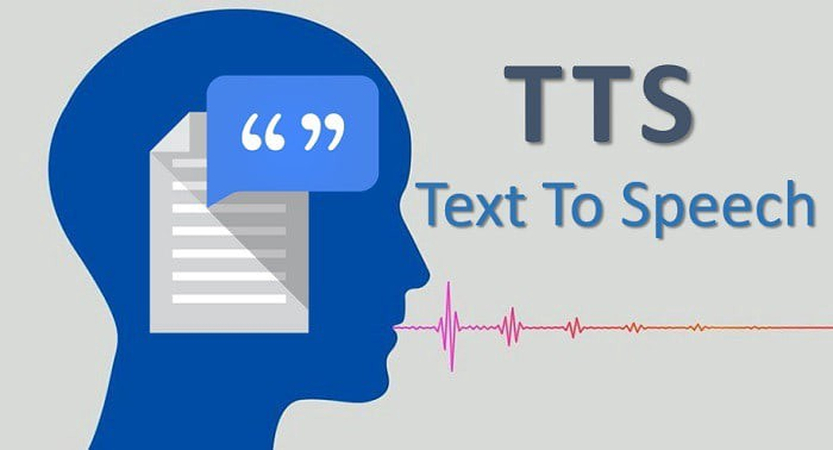
Key Features to Look For:
- Natural-Sounding Voices: Choose a tool with AI voices that are similar to a human being.
- Voice Customization: Pitch, speed, and tone control can help customize the audio according to your taste.
- Multilingual Support: If your audience is worldwide, a tool with multilingual support is helpful.
- Integration Capabilities: Integration with other podcasting tools without any hassles can make your workflow smooth.
- User-Friendly Interface: A user-friendly interface allows you to concentrate on content creation, not technical details.
Part 3: Best Podcast Text to Speech Solutions in 2025
There are more content producers looking for smart ways to produce podcasts, and podcast text to speech is adapting to their needs. Here are some of the top podcast TTS tools in 2025, with clear voices, useful features, and efficient workflows.
1. HitPaw VoicePea
HitPaw VoicePea is designed for users who want to create natural-sounding audio quickly and without technical skills. It's perfect for podcasters who like to write out their script and then translate it into speech instead of recording themselves. The interface is simple, so anyone can easily use and navigate the features. You're able to choose among a range of voices and customize settings like speed and pitch to the tone of your podcast. It's also inexpensive, so it's a fantastic option for little producers or for those who have a low budget.
Key features of HitPaw VoicePea:
- Natural-Sounding AI Voices: Offers realistic voice options that sound smooth and human-like for podcast content.
- Voice Customization: Lets users adjust pitch, speed, and tone to fit the tone and atmosphere of their podcast.
- Multiple Export Formats: Provides audio downloads in MP3 and WAV formats for easy integration onto podcast websites.
- Simple User Interface: Simple design rendered easy to utilize with minimal navigation.
- Affordable Pricing Plans: Affordably priced plans make it accessible for hobbyists as well as small creators.
How to Use HitPaw VoicePea:
Step 1: Input English Text or Upload a FileStart by entering English text directly or uploading a file. If you type the text, make sure it is at least 5 characters long. If you choose to upload a file, ensure it is in .txt or .srt format and contains at least 5 characters.
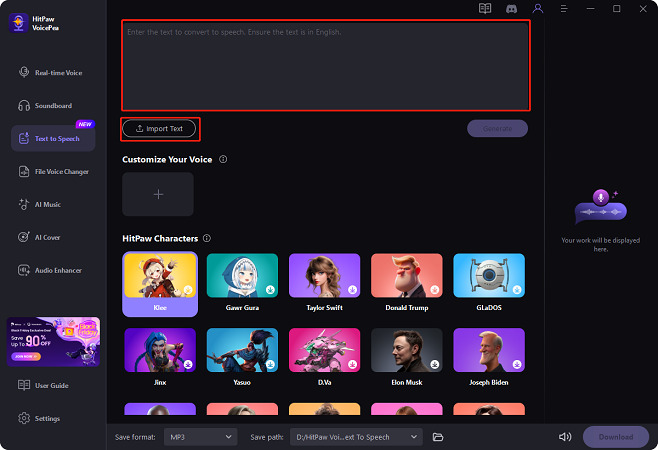
Step 2: Choose a Voice Character
Select the voice character you want to use. You can preview each character's voice by listening to a sample. This will give you an idea of how the final output will sound.
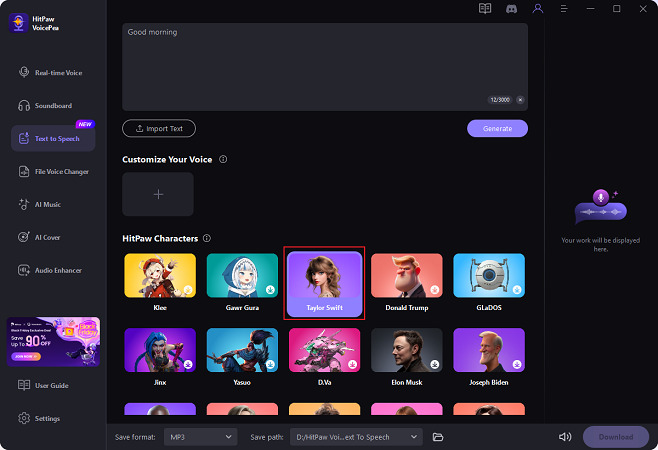
Step 3: Click "Generate" to Create Your Project
Once you've confirmed your text and selected a voice character, click the "Generate" button to start creating your project. Keep in mind that the process may take longer for larger text inputs.
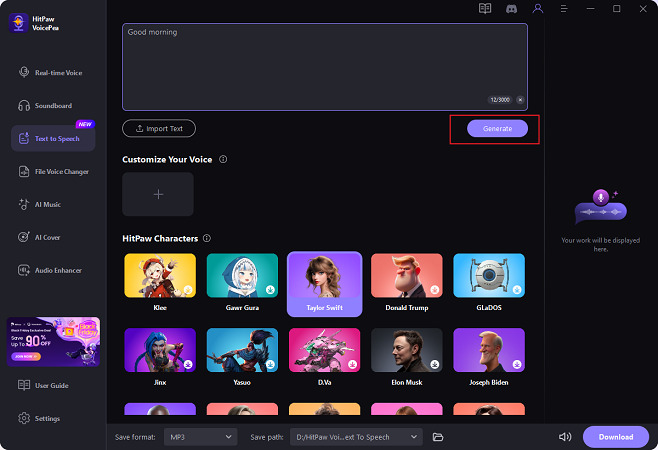
Step 4: Click on the Project to Download
After the project is generated, click on it to open the download option. Then, click the "Download" button to save the file to your computer.
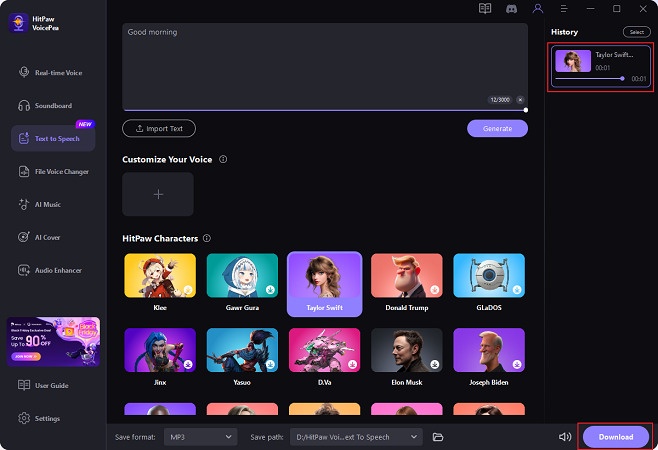
Step 5: Select Multiple Projects for Batch Download
If you want to download several projects at once, click the "Select" button to enter batch download mode. Choose the projects you need and click "Download" to save them all at once.

2. Murf AI
Murf AI is an adaptable text to speech podcast program that suits those who want more control over the audio material. It's applied to podcasters, teachers, marketers, and content creators due to the large voice pool and personalization features. Murf possesses over 120 AI voices with diverse accents and languages in its pool. One of the most powerful among its features is voice cloning, by which you can train the AI to a person's voice-good for branding or ongoing characters.

Pros:
- More than 120 AI voices of various accents and tones
- Voice cloning supported to develop custom voice
- Works harmoniously with other platforms like Canva and Google tools
Cons:
- Basic plan is seriously feature-limited
- Voice downloading only with premium plans
- Supported voice cloning in English only
3. ElevenLabs
ElevenLabs is a high-end text-to-speech tool for creators who want the most human-sounding voice possible. It's renowned for providing realistic voiceovers with pauses, tone variations, and emotions. That makes it especially suitable for use in podcasts that need expressive voices or storytelling. ElevenLabs also supports a lot of languages, so if you have to cater to an international market, it's a great option.

Pros:
- Emotional voice output with tone
- 30+ language and accent support
- Option to create your own AI voice model
Cons:
- Premium features may be expensive
- Some voices might need some tweaking for consistency
- Insufficient features for the free account
4. Speechify
Speechify began as a reading disability text to speech for podcast tool but has evolved into a favorite for podcast text to speech on various platforms. It's simple to use and is compatible with phones, tablets, and computers. The utility reads text aloud with multiple voice options, and it can read many different file types. Podcasters prefer Speechify because it's easy and does the trick without too much to set up.
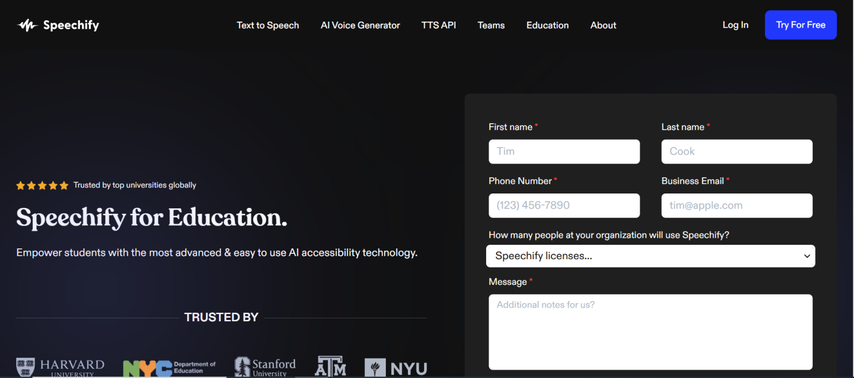
Pros:
- Very easy to use with a clean interface
- Cross-platform compatible across iOS, Android, and desktop
- Supports a large variety of supported file types (PDFs, web pages, etc.)
Cons:
- Fewer voice customization options
- Some free voices have a robotic tone
- Most good voices are behind a paywall
FAQs
Q1. Can I use TTS tools for commercial podcasting?
A1. Yes, some podcast text to speech tools offer commercial licenses, but you should check the terms and conditions of each platform to ensure you're in compliance.
Q2. Can AI voices be used for all kinds of podcasts?
A2. AI voices are versatile and can be used for any genre. However, it's wise to pick a voice that can match the tone and personality of your content.
Q3. Do you have a gratis text-to-speech solution for podcasts I can start with?
A3. Yes, free versions or trials are available with some of these tools. For example, there is a free version of HitPaw VoicePea which you can utilize without payment. However, free versions have minimal voices or export choices and so upgrading may be necessary if commercial use is envisaged.
Conclusion
Podcasting is a great way to get across ideas and tales, but it is time-consuming and takes work-especially when you're doing voice-over work and recording and editing. That's why producers are more and more turning podcast text to speech technology to speed production without sacrificing quality. With the power of artificial intelligence, these applications will read your script with natural-sounding voices, saving you hours of time. If you're just starting out or want to save time while keeping your content fresh and clear, try HitPaw VoicePea. It's simple to use, affordable, and great for making your podcast sound natural and professional.








 HitPaw Univd (Video Converter)
HitPaw Univd (Video Converter) HitPaw VikPea (Video Enhancer)
HitPaw VikPea (Video Enhancer)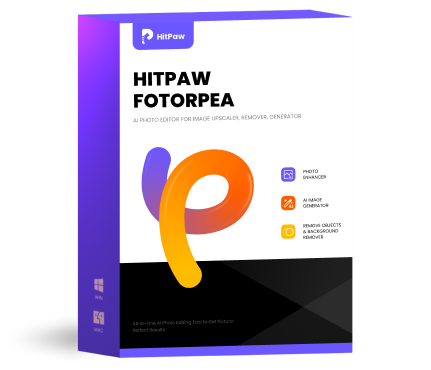 HitPaw FotorPea
HitPaw FotorPea
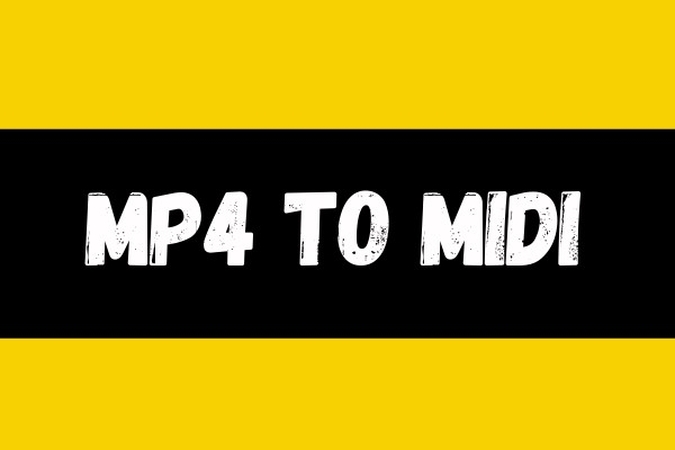



Share this article:
Select the product rating:
Daniel Walker
Editor-in-Chief
This post was written by Editor Daniel Walker whose passion lies in bridging the gap between cutting-edge technology and everyday creativity. The content he created inspires the audience to embrace digital tools confidently.
View all ArticlesLeave a Comment
Create your review for HitPaw articles